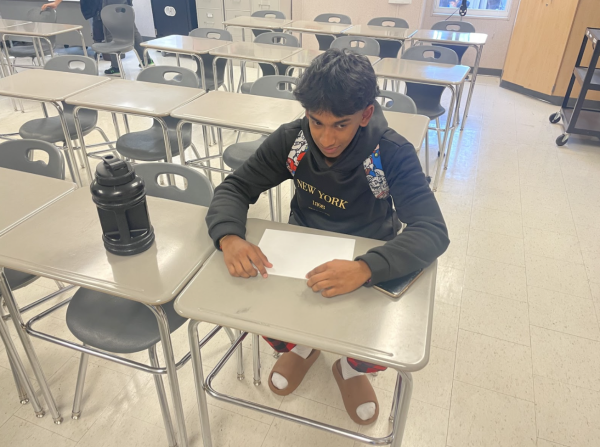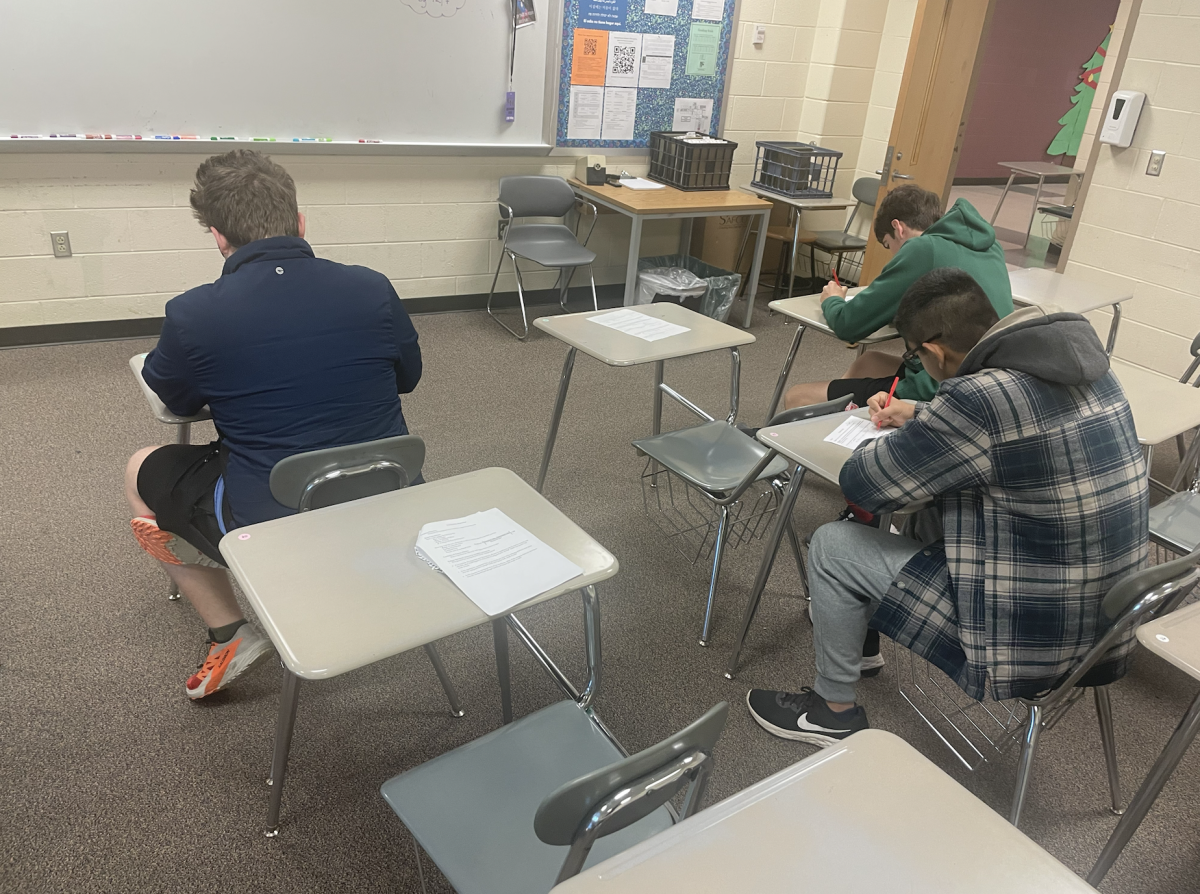As Ishan Ghosh (‘24) walks into his first-period AP Environmental Science classroom for a test, he navigates through the spread out desks to his seat, but something seems different about the class today: he looks around and notices nearly half of his peers are absent. However, many of these students were present every day before the test. He initially assumed it was just a coincidence, but later he received multiple messages from intentionally absent students requesting insight on the test questions Ishan just answered.
Whether it’s AP Biology, AP Calculus AB or AP Physics I, some students find ways to evade test days for rigorous classes to gain an advantage. However, the advantage that they face is ambiguous. Many believe this delayed testing allows students to study for longer and learn from friends the types of questions on the test. However, teachers say that there are many issues that students don’t consider when making these decisions to skip test day.
One of Green Hope’s AP Calculus teachers, Mrs. Laura Kovalaske, believes there are two major reasons for this epidemic of skipping. “The first reason is that they feel unprepared but it’s necessary to dig deeper to find out why they feel unprepared. We have a lot of students who take a lot of AP courses with a lot of extracurriculars, so time management might be the root cause as to why they don’t feel ready,” she said.
Another major reason for skipping tests revolves around the demographic of students at Green Hope. Mrs. Kovalaske explained that some students feel overwhelmed with their numerous commitments. “In the high-level AP courses, which are application-based, it’s hard to memorize and replicate so students have some anxiety because Green Hope is becoming an even stronger academic school, filled with competitive performers. When students don’t know the exact steps for a final answer it can cause some hesitance to take the test,” she said. The pressures that come with learning and performing in such a competitive, academic environment can cause students to feel apprehensive about exam day.
Another major problem with skipping tests, Mrs. Kovalaske said, is that teachers are forced to generate different makeup exams that diminish students’ perceived advantages. Mrs. Kovalaske said, “Most kids who stay home will not even study as much as they planned to because they want to sleep in or do 500 other things and since many students attempt to find out what’s on the test by skipping, we are forced to generate new tests to make it fair for the students who do the right thing.” She continued to explain that students who take makeup exams often perform no better than their counterparts who didn’t. “The test scores on makeups traditionally have been consistent to the scores of the original tests for years, so there’s really no evidence of an advantage.”
Additionally, these makeup tests usually take place during the class period when all the kids return, which may pose another downside to skipping test days. When asked if student’s receive the advantage they believe they will by skipping, Mrs. Kovalaske refuted this belief. “Definitely not. The little boost they might receive on their test score is completely negated because they have to miss an entire period to test. They end up on this hamster wheel, constantly behind for the entire semester if they continue this poor habit,” she said.

The students aren’t the only ones who suffer from the choices of skipping test day. When asked about her personal view of the situation as a teacher, Mrs. Kovalaske responded that creating makeup tests is time-intensive, requiring teachers to complete more work. “We as teachers have to do more work to create these makeup tests, because creating a test isn’t easy. We work really hard to ensure tests are fair and that they represent all the topics that were taught in class. It frustrates me because there are so many kids that are here trying to do the right thing… There are also kids that take the easy way out by skipping and that frustrates me because it’s not fair.” Fairness and equal opportunity are major points of emphasis for the teachers, especially in high level classes that students take to compete for a high class rank, which they believe can yield certain opportunities or success in their future.
While teachers can adjust for the common absences on test day with makeup exams and altered lesson plans, they struggle to account for the other popular skipping plan that many students will take. In order to stay on track with their rigorous AP class, many students prepare for their big AP test by skipping other class periods that day, especially if their AP class occurs in a later period. For example, a student might skip their first period English class and second period history class in order to stay home and study for their third period calculus test.
The skipping epidemic’s impact extends beyond merely AP teachers, affecting many other instructors in school. Mrs. Kovalaske claimed that these effects are so widespread that skipping is a common topic of discussion amongst co-workers at Green Hope. “We notice as teachers. Many students think nobody is paying attention to their attendance, but all of these patterns are discussed and observed by us teachers. If I know a student in my class likes to take short cuts on test days and has a difficult class later during the day, I’ll typically ask their teacher if it’s test day whenever this student is absent, and usually the answer is yes.”
This frequent situation requires even non-AP teachers to shift lesson plans or help students who skip catch up. Therefore, these detrimental actions by students are not only generating more work for every teacher, but are setting these students behind in class, regardless of what skipping strategies they employ.
For those who consider attempting to gain performance advantages by skipping, Mrs. Kovalaske notices these behaviors carry throughout students’ high school careers. “Teachers will notice the absences and are capable of telling if it’s purposeful skipping. In fact, the same students who skip in the [pre-calculus] classes, whether I teach them or they have a different teacher for that class, usually continue to skip in Calculus AB and Calculus BC, albeit our efforts to curb this practice as soon as we notice it.”
Mrs. Kovalaske further expressed her approval of students who are present in every class on test day, even when they aren’t fully prepared. “Even if they aren’t feeling super confident, I applaud their efforts to power through, because it’s unfair that some of their peers skip the test. Oftentimes kids surprise themselves and do better when they provide their best effort instead of waiting for the makeup. Those who make the right decisions on test day will be the same students that I dedicate to supporting in any way they need, including offering to write an amazing letter of recommendation that emphasizes their strong character.”
Green Hope is known by many in the community as a competitive and academically rigorous school. However, students that intentionally skip tests to take extra time to study for tests gain no advantages, especially when the perceived advantages fail to yield boosted test scores and can further contribute to students falling behind. Teachers say that the epidemic of skipping poses a threat to the Green Hope community, and other challenging high schools around the country, by harming students’ learning experiences and disrupting educators’ ability to do their job.















































































